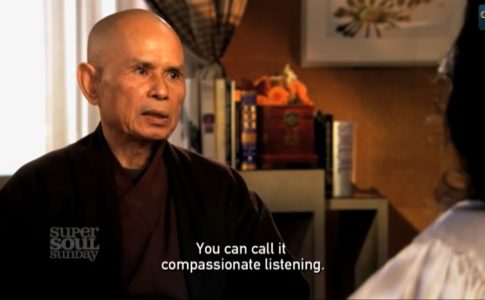Dr. Sarkis is a psychotherapist specializing in anxiety, gaslighting, narcissistic abuse, and ADHD. She is the author of several books, including the bestselling ‘Gaslighting: Recognize Manipulative and Emotionally Abusive People — and Break Free’. She is a nationally certified counselor, a licensed mental health counselor, an American Mental Health Counselors Association diplomat, and a Florida Supreme Court certified family and circuit mediator. She has been in private practice for 20 years and is a senior contributor for Forbes, a contributor to Psychology Today, and the host of the Talking Brains podcast.
In this episode, we talk about…
[2:27] What the term “gaslighting” means
The term comes from a play and then a movie, called Gaslight. The husband is trying to make his wife think she is going crazy. Gaslighting, therefore has come to mean the act of manipulating someone into thinking that her version of reality isn’t true.
Gaslighting can happen in personal relationships, but it can also play out at work and even in politics. It can make you doubt yourself, your competence, and your ability to make decisions. It is a form of emotional abuse, which is a type of domestic violence.
[4:17] Emotional manipulation aimed at your parenting
An emotionally manipulative person can isolate you, and then go after your competency as a parent because they know that will hurt you. If someone is telling you that you aren’t a good parent, or if you wanted to be a good parent you would do certain things, you can start to believe them – especially if you don’t have anyone around reassuring you that you are a good parent.
[5:29] The conditions under which gaslighting occurs
No one is immune from gaslighting. You may think you’re successful at work, or feel like you’re a good parent, and there is no way you could fall for something like this. Gaslighting is a slow process. A person may “love bomb” you in the beginning, telling you how wonderful you are and pushing toward commitment early in the relationship.
This is somebody that will put you on a pedestal and make you feel amazing – but eventually you fall off that pedestal. When you see your partner start to change, you think it must be something you did or something about you. In reality, however, the gaslighter is motivated to build you up and then break you down, leaving you in a state of confusion.
A gaslighter may constantly blame you, deny what you say you saw or heard, hide your items and tell you that you’re irresponsible, or minimize your anxieties. He wants you to distrust yourself so you rely on him more. If he isolates you, he gets more attention from you and it is less likely that a friend or family member will tell you that they think something is wrong with your relationship. The gaslighter will tell you that your friends and family are bad influences, or that they said something horrible about you.
It is difficult to separate yourself from this form of brainwashing, because you believe this person cares about you and is inherently good. You experience cognitive dissonance because your thoughts about this person and how he is treating you are mismatched. It can make you feel like something is wrong with you, you can begin to be untrusting of others, and it changes your worldview.
[9:31] Targets of gaslighting
If a manipulative person sees you as vulnerable, it may make you an easier target. If you are grieving, your guard may not be up as much as it typically would be. A gaslighter might see an opening, because you may be unlikely to call them out on their behavior. People in helping professions (like medical fields, teachers, or counselors) can also be susceptible to gaslighting. These people are caretakers and may have a wider range of what they deem to be acceptable behavior.
There may also be gaslighters that don’t even realize they are doing it. They may have had family members that were unhealthy and manipulative, and now they model their relationships after those people.
Sometimes people realize they are doing it and they seek help. If they are a narcissist, or have narcissistic personality disorder, they tend not to seek help. They will think that everyone else has a problem, not them.
[11:42] How to protect yourself when co-parenting with a manipulative ex
Dr. Sarkis suggests that first, you speak with your attorney and make it clear that this is a high-conflict person who will not give up easily. If you have a parenting plan and the rule is that if they are 30 minutes late for pick-up then you have the kids for the night, this person will show up at 29 minutes and 55 seconds. He will push things to the limit, so you need to make sure you have a very detailed parenting plan developed.
Right of first refusal needs to be a part of the plan, meaning that if you are gone for a certain amount of time then you need to let the other parent know so they can have the kids. You also need to lay out the holiday schedule. Some parents can create this plan on your own. If you have a high-conflict co-parenting situation, you really need a detailed parenting plan to point to. If the gaslighting parent is manipulating you, you can always default back to the plan.
There are co-parenting apps, where you can communicate via the app and not over the phone. Speaking on the phone with a gaslighting co-parent can lead them to pick fights. His goal is to get you upset and then blame you for it. In addition, you cannot let them see you sweat. They thrive off that.
You can also get a parent coordinator, who can be appointed by the court or hired privately. Parent coordinators are usually mental health professionals that help parents come to an agreement on a plan that puts the kids’ needs first.
Sometimes people feel ashamed to bring this up with their attorneys, but Dr. Sarkis assures us there is nothing to be ashamed of. Attorneys are used to people having high-conflict co-parenting relationships. Talking to them about your experience allows them to help you. If an issue is outside their field of expertise, they can certainly point you toward the right person.
[18:26] Coping with gaslighting
Even if you recognize that this is happening to you, what can you do? Do you just not take it personally? Can you rationalize it and tell yourself that there is something going on within this person, and if it wasn’t you it would be someone else, because this is just what they do?
Dr. Sarkis says that it can be helpful to think about these things rationally, but it can also be really difficult to think rationally when you are going through something like this. When someone is so adept at finding our psychological vulnerabilities and aims for them, it can be really tough to take a step back – especially when it involves your kids.
It is normal to feel angry. It is normal to feel on edge because your co-parent is going after everything that is important to you. Again, that is why it is really important to talk to someone who specializes in narcissistic abuse or domestic violence. You can talk to a therapist who can help you work through and validate your feelings. It’s okay to feel frustrated about it, and sometimes just having somebody tell you that can be very freeing.
[22:06] How to communicate with people that have manipulative tendencies
When communicating with people that are manipulative, it is best to be brief, informative, friendly, and firm. Dr. Sarkis shares the “gray rock technique”, meaning you respond like you’re a gray rock. You are boring and non-confrontational, simply stating facts. You may also need to use the “broken record technique”, meaning that you repeat the same thing over and over again. When they try to push limits, you can calmly and repetitively refer them back to the parenting plan.
It is also important to recognize that this person may always have a high-conflict personality. Trying to figure out why this happened or hoping that they change is just a lot of expended energy that you could use for other things. If you can, it’s often better to get to a place where you accept that this is how they are and instead focus on what is in your best interest and the best interest of your kids.
[23:41] Making sure our kids are safe in the care of a co-parent
Again, Dr. Sarkis reminds us of the importance of a structured parenting plan. If you are concerned that your children are in an emergency situation, definitely contact authorities. If it is something more minor that you just think isn’t okay, you may want to contact your attorney to double check with them on that.
Without even mentioning the other parent, you can also talk with your kids about establishing healthy boundaries and teach them what to do if they are ever in an unsafe situation.
If you feel like your children are unsafe, Dr. Sarkis also suggests that you examine your thoughts and behavior as well. Is it really an issue of safety, or is it that you know what this person is capable of doing. Are your children really at risk or is it something you’re seeing play out in your mind?
Dr. Sarkis recognizes that people can have some pretty severe trauma from being in a relationship with these types of people. You have to look at, is it something that is coming up for me or is my child really in a dangerous situation? If someone is truly in danger, you need to contact the authorities and/or your attorney. The laws are different across the states, so you also want to make sure you understand those. Emotional abuse and alienation of a parent can have varying shades of importance according to the law in different places. Consulting with an attorney, as well as a mental health professional.
You are going to have to co-parent with this high-conflict individual for the rest of your life. Talking with someone about it can really help, especially if your co-parent tries to infringe upon your rights. Having people in your corner helps to back you up and boost your confidence to stand up for yourself.
[27:15] Recovering from gaslighting
Since gaslighting is a form of domestic violence, it is imperative to talk to a mental health professional on a regular basis. There are a lot of therapists who will work on a sliding scale or offer pro bono counseling, if the cost is a concern. If at all possible, speak with someone who has some experience with narcissistic abuse or training in domestic violence issues and PTSD. It is possible that you may have post-traumatic stress disorder from some of the things you encountered in that relationship.
A mental health professional can help you identify what you are going through and also help you to establish a new normal free from that relationship. There is also a phenomenon that gaslighters will do called “hoovering” – they will try to suck you back into the relationship. If you try to leave, they will send messages through other people and promise you everything you didn’t have in the relationship before. Once you are back in the relationship, all those promises disappear and they are often worse than they were before.
Gaslighting is often known as a gateway form of abuse, meaning that it is one of the earlier forms of abuse that can segue into physical abuse which can ultimately be lethal. The more that children are exposed to domestic violence growing up, the more likely it is that they will become victims of domestic violence in the future. It is crucial that we protect our kids and break the cycle.
Having gone through an experience like this, you might not be able to get back to who you were before. There is, however, value in coming through it. You have a deeper sense of compassion for what others are going through, and you can teach your children that we can get through hard things.
[29:56] Red flags in the dating world
When you decide to get back out in the dating world, your defenses will probably be on high-alert. That is normal, and it is helpful to talk to your therapist about it. Dr. Sarkis recommends that people make a list of what they are looking for in someone. When you meet someone and the butterflies start, you can take a look at that list and see if it really matches up to the person in front of you. Falling in love can always hijack your sanity, to some extent. Having a list can help you to think more logically and less emotionally.
You can also create a checklist to remind yourself to look for the early signs of gaslighting. Are you being love bombed, put on a pedestal, and forced into commitment and intimacy early on? You also want to be confident that this person speaks respectfully to you and to your children. They should have good relationships with their own family and friends, and share some of your values and beliefs.
Connect with Dr. Stephanie Sarkis:
Website: https://www.stephaniesarkis.com
Blog: www.stephaniesarkis.com/blog
YouTube: www.youtube.com/StephanieSarkis
Twitter: www.twitter.com/stephaniesarkis
Facebook: www.facebook.com/StephanieSarkisPhD
Instagram: www.instagram.com/sarkisphd
LinkedIn: www.linkedin.com/in/StephanieSarkis
Pinterest: www.pinterest.com/StephanieSarkis
Twitch: www.twitch.tv/StephanieSarkis
Connect with Joly:
Website: https://www.soloparentmag.com
Instagram: https://www.instagram.com/soloparentpodcast






